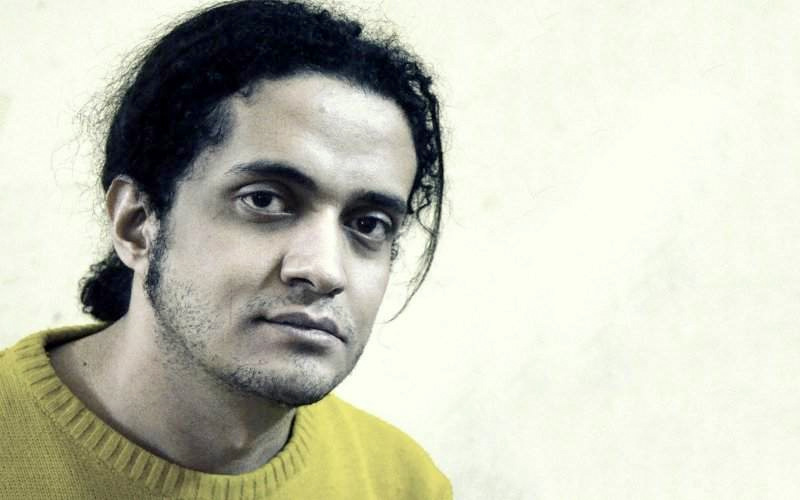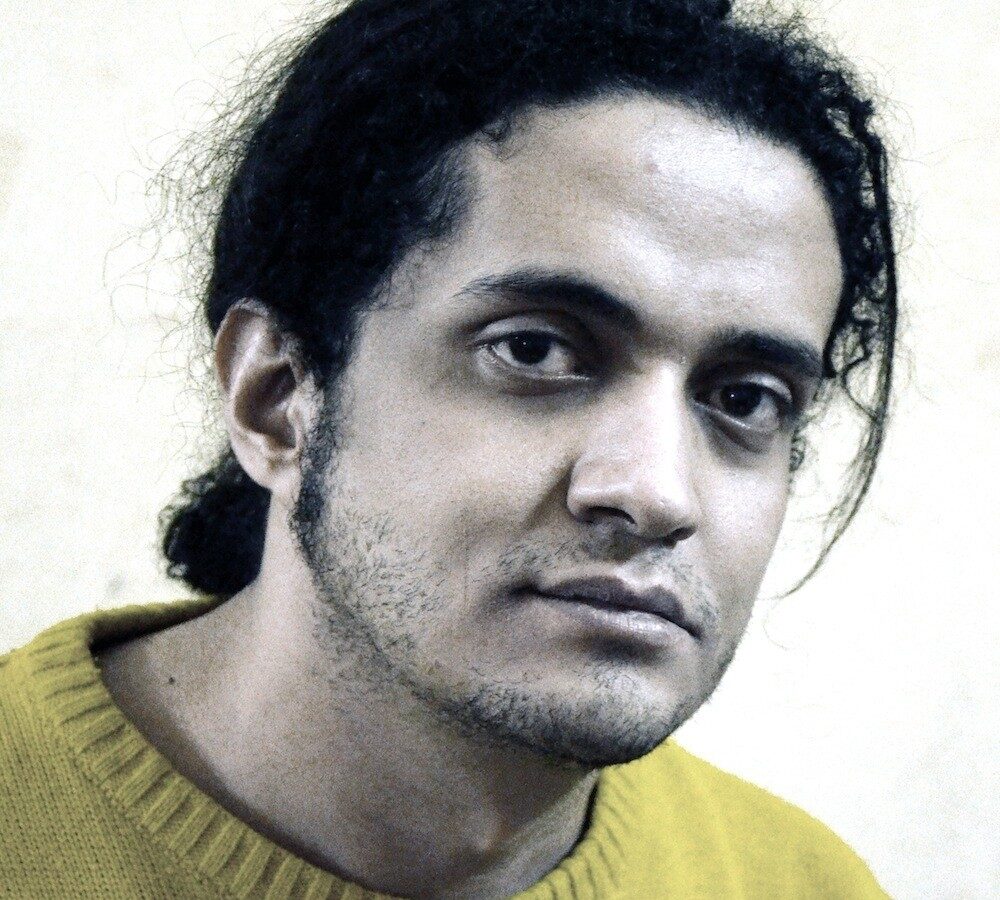
A Palestinian poet in Saudi Arabia who was sentenced to death for writing poems and allegedly renouncing Islam has had his punishment reduced. The more lenient sentence, however, amounts to what many still consider cruel and unusual punishment for exercising non-violent speech; the writer now faces eight years in prison and 800 lashes over 16 sessions.
Ashraf Fayadh’s troubles with the Saudi government began after he had a personal dispute with an individual in the southwestern city of Abha in 2013. That person, Shaheen bin Ali Abu Mismar, reported him to authorities, alleging “he was cursing against Allah and the prophet Muhammad, insulting Saudi Arabia and distributing a book ofhis poems that promoted atheism,” the Guardian explained. Fayadh’s book was filled with love poems that describe his experience as a refugee from Palestine.
He was also accused of having photographs on his phone of women he met at an art show. Fayadh was detained by the country’s religious police, the mutaween, and released after a day. He was arrested again on January 1, 2014, and detained for 27 days before being transferred to a local prison.
Fayadh was charged with apostasy, but some of his supporters believe the charges were an act of revenge by the country’s religious police because he posted a video of a public flogging online.
Regardless of the government’s motivation, in May 2014, Fayadh was sentenced to four years in prison, as well as 800 lashes, by a general court in Abha.
In November 2015, however, a new panel of Saudi judges rejected his appeal and inflicted a harsher punishment: death by beheading. The court ruled his repentance was not enough to prevent execution. After hearing the news, Fayadh’s father suffered a stroke, and Fayadh was barred from seeing him before he died last month. He was not allowed to attend the funeral.
The decision to kill Fayadh sparked worldwide outrage, and countless artists and organizations renounced the sentence. In an appeal issued last month, Fayadh’s lawyer, Abdulrahman al-Lahem, argued the charges against him were based on “uncorroborated allegations” from Abu Mismar, also noting the court had failed to acknowledge that Fayadh suffers from a mental illness. Further, Lahem maintained he had been denied a fair trial.
The Guardian summarized Lahem’s appeal, which a panel of judges heard in court on Tuesday:
“In documents considered by the panel of judges on Tuesday, Lahem argued that Fayadh’s initial arrest in 2013 was unlawful as it was not ordered by the state prosecution service. The allegation of apostasy made by Shaheen bin Ali Abu Mismar, who is alleged to have had a personal dispute with the poet, was not corroborated by other evidence, which goes against the principles of sharia law, he argued.”
As a result of this appeal, the court ruled this week to rescind his death sentence in favor of eight years in prison and 800 lashes. Though Lahem posted on Twitter that the punishment had changed, he also noted that Fayadh’s apostasy conviction was upheld.
The Saudi ‘justice’ system continues to execute individuals at an alarming rate, earning a designation from Amnesty International as one of “the most prolific executioners in the world.” Numerous individuals have been sentenced to death for criticizing the government and allegedly insulting Islam. In 2015, the governmentexecuted 157 people, the highest number in two decades.
In Fayadh’s case, critics have pointed out the inhumanity of subjecting a writer to 800 lashes and prison time for the simple act of penning poems about love and hardship, and allegedly insulting Islam — a charge Lahem maintains is based on lies.
Adam Coogle, an investigator at Human Rights Watch, did not necessarily view the change in Fayadh’s sentence as a victory. “Instead of beheading Ashraf Fayadh,” he said, “a Saudi court has ordered a lengthy imprisonment and flogging. No one should face arrest for peacefully expressing opinions, much less corporal punishment and prison. Saudi justice officials must urgently intervene to vacate this unjust sentence.”
Author Irvine Welsh was more candid: “When this twisted barbarism is thought of as a compromise, it’s way past time western governments stopped dealing with this pervert regime,” he said, possibly referring to ties between the Saudi monarchy and the United States and British governments — in spite of the Saudis’ ongoing human rights abuses, both domestically and in foreign bombing campaigns.
Jo Glanville, director of English PEN, a literary organization that appealed for Fayadh’s release, expressed cautious comfort at the court’s ruling on Tuesday, but insisted the battle is not over:
“It is a relief that Ashraf Fayadh no longer faces execution, but this is a wholly disproportionate and shocking sentence. It will cause dismay around the world for all Ashraf’s many supporters,” he said.
“The charges against him should have been dropped and he should be a free man today. We will continue to campaign for his release.”


